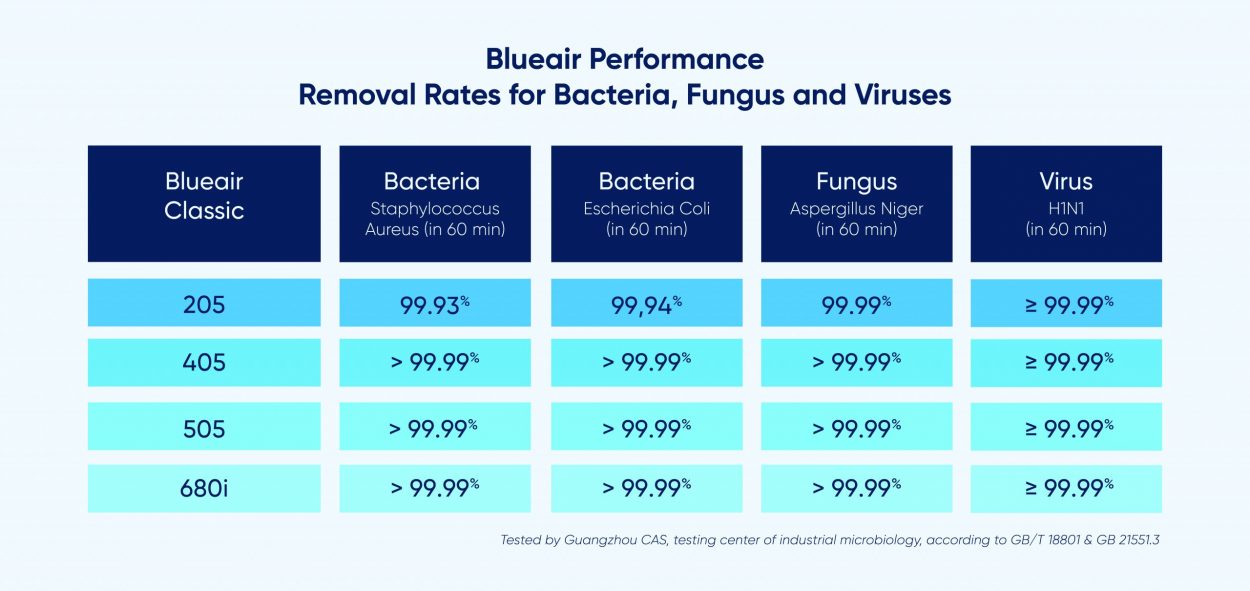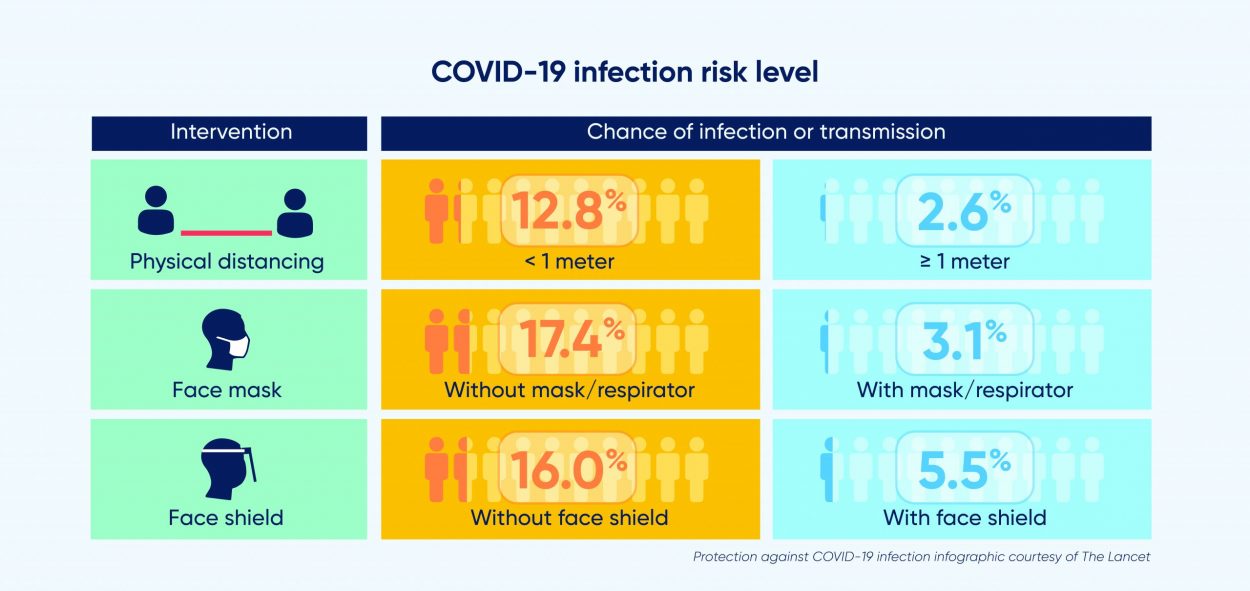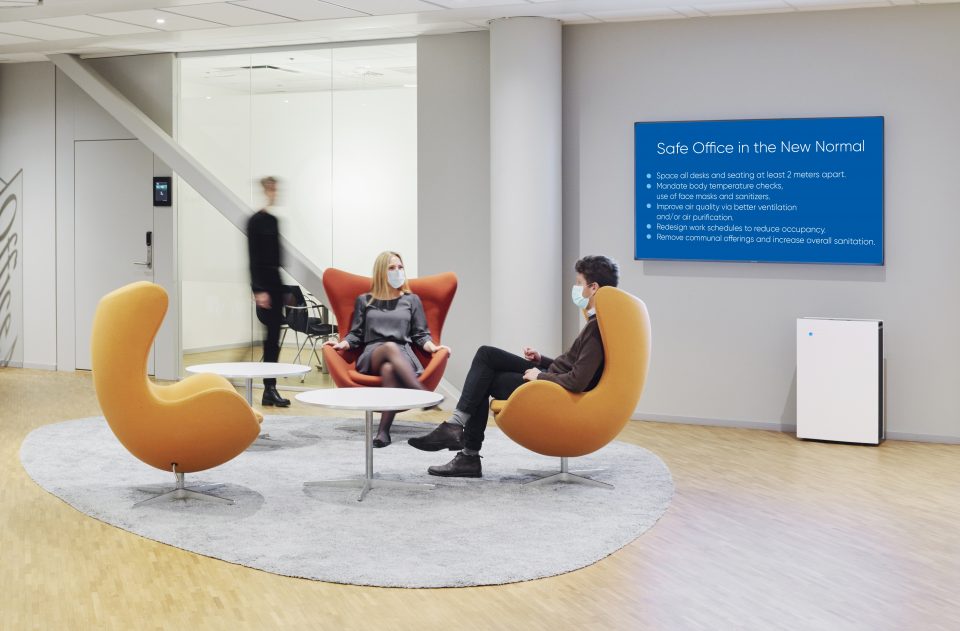Have you ever imagined what our daily lives will be like after the large-scale social restrictions (PSBB) end?
Understandably, many of us are worried about the looming risks of returning to normalcy post-PSBB, especially when going about our activities in public places where we have no control over various things, such as regulating people density, maintaining cleanliness, etc.
The wait for drugs and vaccines for COVID-19 has added to our anxieties as we approach the “new normal” amid the ongoing pandemic and persistently high infection rates. Justifiably, the rationale to end PSBB is to bring the economy back, which dominates anxieties and fears more than the virus itself.
Anticipating the end of PSBB, the government issued a New Normal Guide on Monday 25th of May 2020. Thus, the public is expected to follow a set of health protocols as laid out in the guide when conducting day-to-day activities outside of their homes and adapt to the ongoing pandemic situation. The guidelines issued by the Ministry of Health are the government’s attempt to prevent the spread of COVID-19 post-PSBB, especially in the work environments and public places.
While the New Normal Guide has only just been issued, procedures such as using masks, frequently washing hands with soap or hand sanitisers, and keeping a safe distance, have actually been implemented to the work environment during PSBB, especially in essential sectors that were allowed to remain operational by the government, such as the health, food, energy, communication, finance and banking, logistics and strategic industries sectors.
To anticipate working back in offices, maintaining a clean working environment and personal hygiene are essential. So are using personal protective equipment like masks, gloves, and glasses. But clean air is often neglected, considering that transmission of the virus occurs mostly via air indoors.
In order to return to work in the office after PSBB ends, we need to understand the risks involved and bad habits that we need to address. Some major risks include:
- Avoiding to use a mask because it restricts intelligible communication and respiration/breathing freely.
- Poor air quality in a room due to lack of poor ventilation and air circulation.
- Using shared office equipment, such as telephones, fax machines, photocopiers, and surfaces that we frequently come into contact with such as door handles, keyboards, toilet flush, elevator buttons, sink taps, etc.
- Working in offices with tight spaces and narrow clearances that make it difficult to keep a safe distance.
- Being in a room with an infected person, whether with or without symptoms.
- Being in a crowded public place while keeping a safe distance is not possible.
- Being in a small space without air circulation like in an elevator.
To avoid COVID-19 transmission and following the “New Normal” guidelines, here are the things we need to pay attention to when office activities resume:
- Periodically Clean and Disinfect
The use of the appropriate amount of chemicals such as alcohol, ethanol, hydrogen peroxide, or sodium hypochlorite can deactivate the virus very quickly.
Areas to be disinfected regularly include door handles, stairs, elevator buttons, and shared office equipment and facilities such as telephone handles, scanners, fax machines, toilets, etc. This is to be done because studies show that the novel coronavirus can attach to and survive for hours and even days on the surface of an object. However, contact time and the number of virus particles (viral load) are far more important than just the presence of the virus, so we need to control and reduce it. However, in our zest to disinfect, please keep in mind of the dangers and side effects cleaning chemicals may cause to our health and safety. Always strictly follow instructions on the appropriate dose and application as recommended in the accompanying labels.
- Maintain Workplace Air Quality
Even with keeping safe distances and using masks, air quality also needs to be kept clean and healthy. The basic reason is that 90 percent of our daily activities are done indoors, and viruses can easily and quickly spread through the indoor air. Not to mention, the use of household chemicals that may aggravate allergies and respiratory problems.
As stated in the New Normal Guide, maintaining air quality can be done by creating good air circulation that allows fresh air to enter the room and prevent dirty air from accumulating.
However, most offices such as those in buildings and shophouses do not enjoy the luxury of having adequate ventilation. Often, it is neither practical nor possible to open a window to ventilate due to security and safety concerns. Furthermore, for those living in big cities with persistently poor outdoor air qualities, letting outside air in may worsen the situation.
In addition to clean air, humidity levels also need to be maintained to remain ideal. Rooms or parts of the building that are not exposed to sunlight will tend to be damp, which can increase the risk of contracting any virus. The same adverse effect also applies to low or cold temperatures due to the use of air conditioners.
Therefore, the use of quality air care devices, such as air purifiers, dehumidifiers, and humidifiers to maintain ideal air conditions will not only benefit the health and wellbeing of workers in the office but also reduce the number of bacteria and viruses in the air, thus potentially lower the risk of infection.
- Installing Glass Dividers or Partitions
This alternative can be used for spaces that are difficult to apply the 1-metre distancing rule or when it is not possible to set workers’ position to not face each other, especially for those providing customer services in banks and other such places.
In Italy, new normal rules in restaurants are applied by using a glass divider on each table, aside from being transparent and unobtrusive, people usually spend a lot of time eating together, so restaurants do not need to rearrange tables to maintain a safe distance or limit customers by extreme amounts.
- Perform Periodic Body Temperature Measurements
The most easily recognised symptom when infected, although not always, is an increased body temperature above 37.8°C. If this happens, people who have body temperatures above normal are advised to isolate themselves.
The New Normal Guide recommends keeping at least one metre from each other. A study found that at a distance of one metre, you can reduce the risk of contracting the virus by up to 2.6 percent.
But some countries apply 1.5 to two metres as a safe distance, such as the Netherlands, the UK, the US, Spain, and Italy. This range is difficult to apply when mixing in public transportation, restaurants, etc.
To work out a distance of one metre from each other in the room, regulate the number of workers who enter or by applying the 10-4 cycle, which is 10 working days in the office and four days at home, as applied in Austria.
- Using Public Transportation
Use private vehicles to travel as much as possible. If you have to use public transportation, keep wearing a mask, avoid touching surfaces, diligently wash hands with soap or hand sanitiser, avoid talking or making calls, and keep a safe distance under any markers provided.
Experts are still developing a vaccine against the novel coronavirus. Until Indonesia and the rest of the world are ultimately protected, take part in ensuring a healthy and safe environment. Matter of fact, most areas in Indonesia are reopening. Together, the chances of the virus spreading can be reduced and be eventually gone by essentially following the government’s health protocols as well as maintaining personal hygiene and optimal health wherever you might be.
This article is written by Higienis Indonesia, a specialist in quality health and hygienic solutions. Its air care products include Blueair, the award-winning air purifier brand from Sweden that combines superior clean air performance with low energy consumption and noise.




